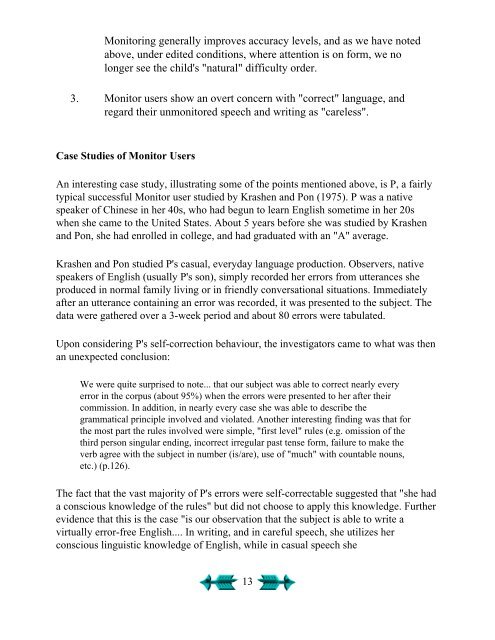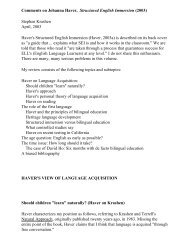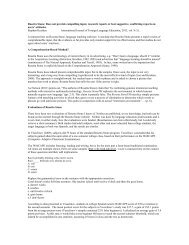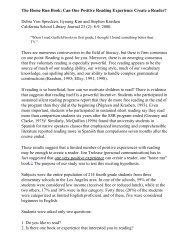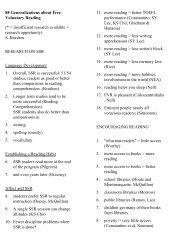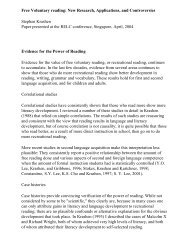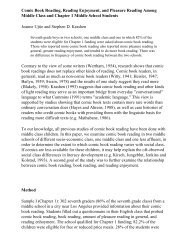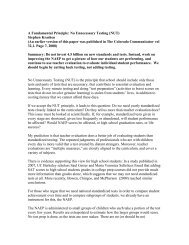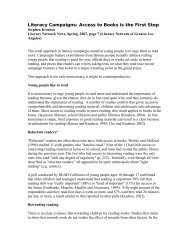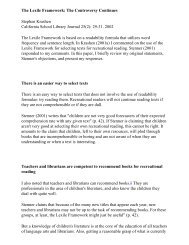Second Language Acquisition and Second ... - Stephen Krashen
Second Language Acquisition and Second ... - Stephen Krashen
Second Language Acquisition and Second ... - Stephen Krashen
Create successful ePaper yourself
Turn your PDF publications into a flip-book with our unique Google optimized e-Paper software.
Monitoring generally improves accuracy levels, <strong>and</strong> as we have noted<br />
above, under edited conditions, where attention is on form, we no<br />
longer see the child's "natural" difficulty order.<br />
3. Monitor users show an overt concern with "correct" language, <strong>and</strong><br />
regard their unmonitored speech <strong>and</strong> writing as "careless".<br />
Case Studies of Monitor Users<br />
An interesting case study, illustrating some of the points mentioned above, is P, a fairly<br />
typical successful Monitor user studied by <strong>Krashen</strong> <strong>and</strong> Pon (1975). P was a native<br />
speaker of Chinese in her 40s, who had begun to learn English sometime in her 20s<br />
when she came to the United States. About 5 years before she was studied by <strong>Krashen</strong><br />
<strong>and</strong> Pon, she had enrolled in college, <strong>and</strong> had graduated with an "A" average.<br />
<strong>Krashen</strong> <strong>and</strong> Pon studied P's casual, everyday language production. Observers, native<br />
speakers of English (usually P's son), simply recorded her errors from utterances she<br />
produced in normal family living or in friendly conversational situations. Immediately<br />
after an utterance containing an error was recorded, it was presented to the subject. The<br />
data were gathered over a 3-week period <strong>and</strong> about 80 errors were tabulated.<br />
Upon considering P's self-correction behaviour, the investigators came to what was then<br />
an unexpected conclusion:<br />
We were quite surprised to note... that our subject was able to correct nearly every<br />
error in the corpus (about 95%) when the errors were presented to her after their<br />
commission. In addition, in nearly every case she was able to describe the<br />
grammatical principle involved <strong>and</strong> violated. Another interesting finding was that for<br />
the most part the rules involved were simple, "first level" rules (e.g. omission of the<br />
third person singular ending, incorrect irregular past tense form, failure to make the<br />
verb agree with the subject in number (is/are), use of "much" with countable nouns,<br />
etc.) (p.126).<br />
The fact that the vast majority of P's errors were self-correctable suggested that "she had<br />
a conscious knowledge of the rules" but did not choose to apply this knowledge. Further<br />
evidence that this is the case "is our observation that the subject is able to write a<br />
virtually error-free English.... In writing, <strong>and</strong> in careful speech, she utilizes her<br />
conscious linguistic knowledge of English, while in casual speech she<br />
13


